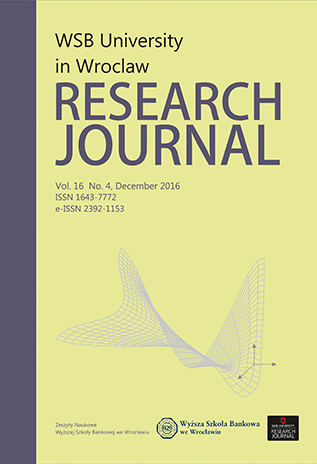Reflections on methodology for and the importance of indicators for campus sustainability – a Lithuanian case study
DOI:
https://doi.org/10.29015/cerem.363Słowa kluczowe:
campus sustainability, sustainability management, fragility, antifragility, methodologyAbstrakt
Aim: Provide a summary of the discussion of focus group 2 at the workshop on “Methodology for assessing the campus sustainability from the perspective of multi-level antifragility” held in June 2016 at Siauliai University (Lithuania), as well as reflection notes each of the participant wrote after the workshop. The paper shows the outcome of the process of interaction and reflections of the authors.
Design / Research methods: This article contains feedback based on the experience and ideas from third year students from sustainable business from the University of Siauliai (Lithuania). Discussion took place during the workshop in focus groups. Afterwards, a discussion took place among all participating students and lecturers. After the workshop, the authors wrote individual feedback notes. These are summarized in this paper.
Conclusions / findings: When using a wider set of indicators of campus sustainability showing different types of fragilities, different stakeholders need to be used as a source of information. The reason is that when not possessing information on a certain aspect, as was confirmed by this focus group, an indicator tends to be considered irrelevant. A conclusion that should be treated with care is that indicators of lying and cheating, honesty, as well as indicators of mistakes may be a good starting point for creating indicators of campus sustainability focusing at threats for organizational viability and sustainability of the university’s external environment.
Originality / value of the article: The article provides critical feedback on an innovative approach towards research on campus sustainability.
Bibliografia
Kahnemann D, (2011) Thinking, Fast and Slow, Farrar, Straus and Giroux, New York USA.
Taleb N.M. (2012), Antifragile - things that gain from disorder, Penguin Books, London.
Pukenė R. (2015), Geriausi Lietuvos Universitai ir Kolegijos, http://www.delfi.lt/news/daily/education/paskelbe-geriausius-lietuvos-universitetus-ir-kolegijas.d?id=67885064 [20.06.2016].
Siauliai University Website, http://www.su.lt/index.php?option=com_content&view=article&id=167&Itemid=5520&lang=lt [20.06.2016].
Pobrania
Opublikowane
Numer
Dział
Licencja
Autor przenosi nieodpłatnie na Wyższą Szkołę Bankową we Wrocławiu , bez ograniczeń terytorialnych, majątkowe prawa autorskie do tego utworu w rozumieniu ustawy z dnia 4 lutego 1994 roku o prawie autorskim i prawach pokrewnych ( Dz.U. 1994, Nr 24, poz. 83 ze zm. )na zasadzie wyłączności, tj. prawo do:
a) wyłącznego używania i wykorzystania utworu w dowolnej działalności przez Wyższą Szkołę Bankową we Wrocławiu, w szczególności w działalność Biblioteki Cyfrowej uruchomionej przez Wyższą Szkołę Bankową we Wrocławiu
b) wytwarzania, utrwalania i zwielokrotniania egzemplarzy utworów wszelkimi technikami, w tym techniką drukarską, reprograficzną, zapisu magnetycznego oraz techniką cyfrową, w szczególności ich zwielokrotniania poprzez dokonywanie zapisów na płytach typu CD,
c) zamieszczenia wybranych fragmentów utworu w celach promocyjnych w publikacjach, materiałach promocyjnych, w sieci Internet oraz sieciach wewnętrznych typu Intranet Wyższej Szkoły Bankowej we Wrocławiu,
d) wprowadzania utworu do pamięci komputera Wyższej Szkoły Bankowej we Wrocławiu,
e) kopiowania i powielania utworu w technologiach fotomechanicznych lub innych znanych w dniu zawarcia umowy (fotokopie, kserokopie itp.),
f) przetworzenia dzieła na formę elektroniczną i nieograniczonego rozpowszechniania w sieci Internet.


